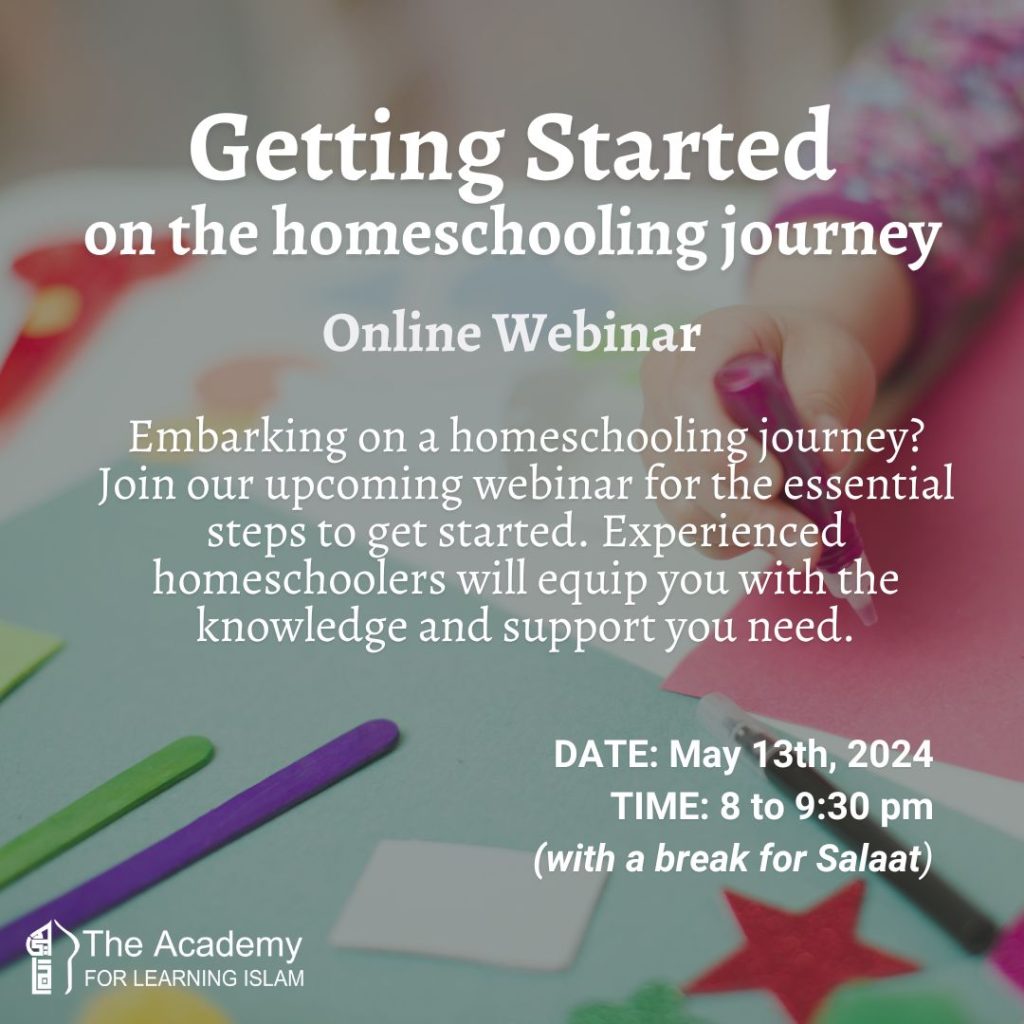Homeschooling Resources
Many Muslim parents are turning to homeschooling. They want to create an environment that nurtures faith through knowledge and awareness. This page has material that will help parents in their homeschooling journey. We have gathered a team of parents who have years of experience in homeschooling who will hold webinars to discuss this topic and answer questions. Please watch this space for updates.

You Don’t have to be a teacher to Homeschool
Remember that homeschooling is a unique journey for each family, and it’s okay to adapt your approach to suit the needs of your child(ren) and your family dynamics. Regularly assess what is working and make adjustments as necessary.
News & Announcements
Got questions? We got answers!
Homeschooling Resources
Having access to good homeschooling resources is key factor to your child learning experience.
IXL Learning
Unlimited practice problems with meaningful, up-to-date tracking on your child’s progress. Learn thousands of K-12 topics online. Get detailed feedback and guidance. Win fun awards!
Learning House
Whether you are a homeschool parent, a parent of children in school, an educator, or a school looking for curriculum we are here to help you find the perfect resource to meet the educational needs of your students. With thousands of resources and over 25 years of experience, we can help you succeed.

